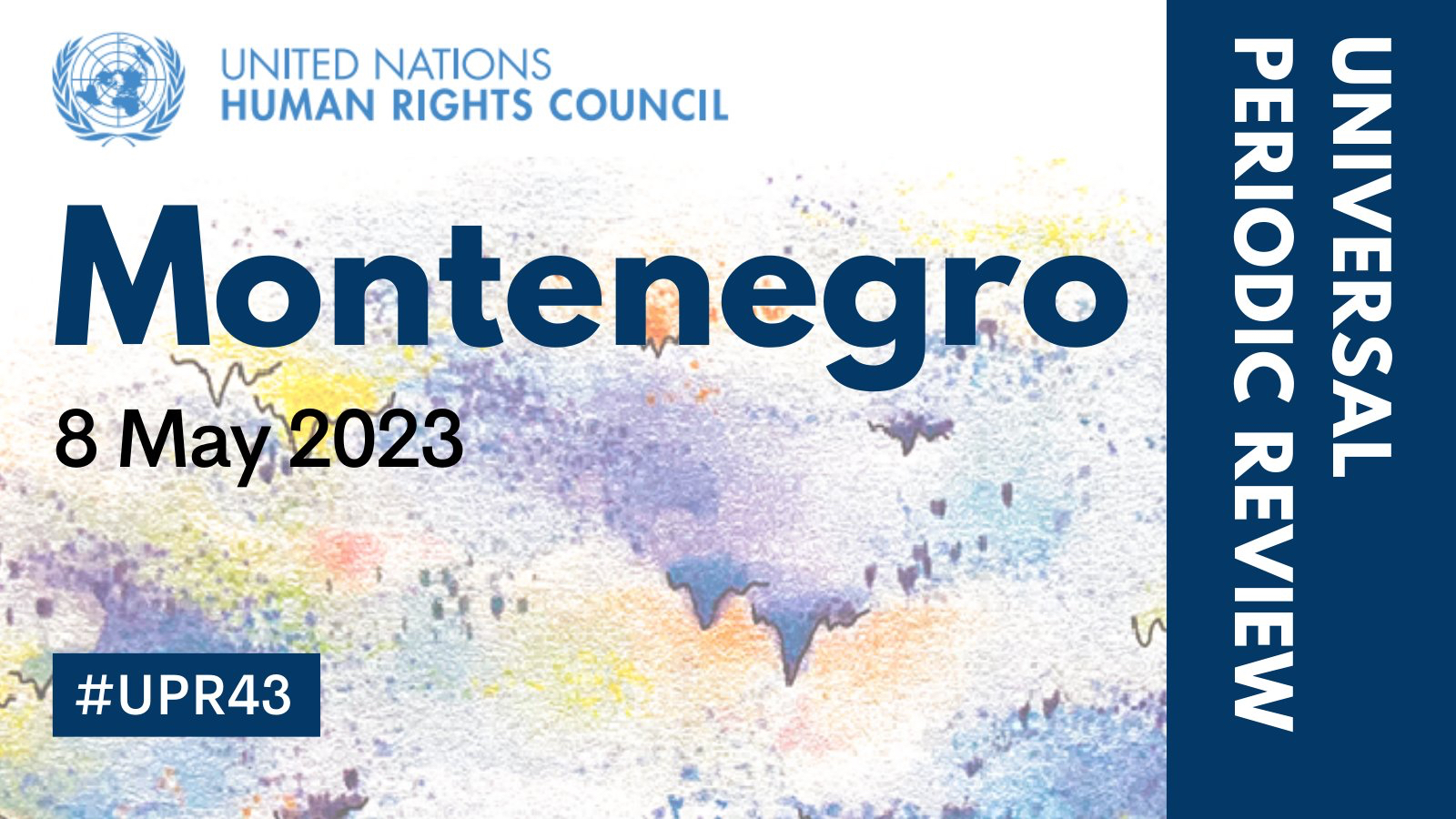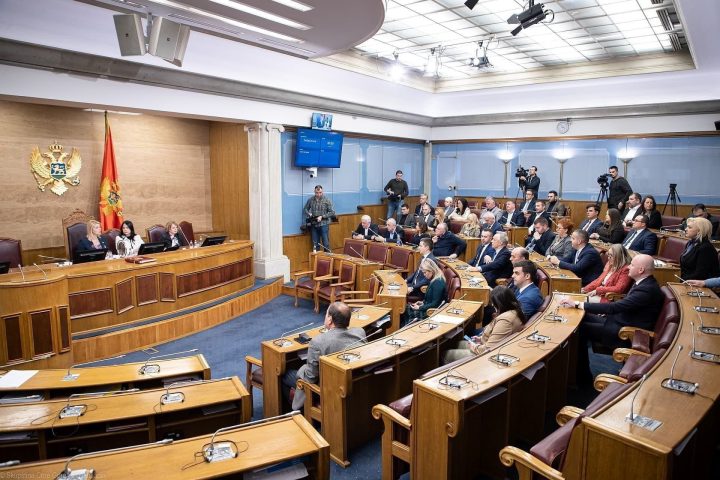
UN ON THE STATE OF HUMAN RIGHTS IN MONTENEGRO
09/05/2023
31 YEARS SINCE THE CRIME OF DEPORTATION OF REFUGEES – INVITATION TO MEMORIAL GATHERING
19/05/2023DISCRIMINATION OF FAMILIES OF THE VICTIMS OF ABDUCTION IN ŠTRPCI

Photo: website of the Parliament of the Montenegro
Human Rights Action protests the fact that, at yesterday’s session, members of the National Assembly of Montenegro adopted the Draft Law on Veterans and Disability Protection, which selectively prescribes the institute of “civilian victim of war”. The families of civilian victims from Montenegro who died as a result of armed conflicts in Croatia and Bosnia and Herzegovina, such as the families of passengers who were abducted from the train at the station in Štrpci and were killed in the territory of Bosnia and Herzegovina, were excluded from its application. We hope that the adoption of such a discriminatory solution is the result of insufficient thought, rather than discriminatory intent.
The controversial Article 17a stipulates that the family of a civilian victim of war is “the family of a person who was killed, who died or who disappeared during armed conflicts that took place during a state of war in the territory of Montenegro”.
One of the two cumulatively set conditions – that the crime against civilians had to be committed “during a state of war” – excludes all those who became victims in connection with the armed conflicts of the 1990s in Croatia and Bosnia and Herzegovina, as the Federal Republic of Yugoslavia did not declare a state of war at that time because its authorities wanted to cover up the military and other forms of support they were providing to representatives of the Serbian minority in wars that were fought in other territories. The other cumulative condition – “in the territory of Montenegro” – additionally excludes the families of passengers who were abducted from the train in Štrpci, because they – although citizens of Montenegro – were killed in the territory of Bosnia and Herzegovina.
This discriminatory amendment was proposed yesterday by the Democrat MP Momo Koprivica. The competent committees (the Legislative Committee and the Committee on Health, Labour and Social Welfare) approved it and it was adopted on the same day by the majority of the votes of MPs – 41 of them, including the MPs from the URA. This is particularly surprising considering the programme directions and earlier efforts of these political parties.
Such a solution is in contradiction with the recommendations of the Committee on Enforced Disappearances, as well as the UN Working Group on Enforced Disappearances, which requested as early as 2015 that Montenegro provide quick, fair and adequate compensation to all persons who suffered damage as a direct result of enforced disappearances regardless of when they happened, emphasising that their rights should be guaranteed in a non-discriminatory manner.
Since the President of the State Milo Đukanović is already refusing to sign the laws the National Assembly of Montenegro passed after the decree on its dissolution, we appeal to the newly elected President Jakov Milatović not to sign the adopted Law on Veterans and Disability Protection, but to rather return it after the upcoming parliamentary elections to the new, legitimate convocation of the Assembly, which we expect to correct the injustice.
Although the adoption of the above discriminatory solution took only one day, the Resolution on the crime in Štrpci, initiated by the families of the victims, has been waiting to be debated by the parliament for an entire year, since May 2022. It is stated in the proposal of the Resolution that “the Assembly of Montenegro calls on the Government of Montenegro to find a legal mechanism for granting the status of civilian victims of war to the families of those who were abducted, as an expression of solidarity and moral support”.
Although nothing was done regarding the above, one of the proponents of the Resolution, MP Suada Zoronjić (URA), decided to support the proposed changes to the Law that exclude the families of the victims in Štrpci. The same was done by other representatives of the Citizens’ Movement URA, who could have been expected to remember the victims of the abduction in Štrpci and advocate for their equal treatment.
Human Rights Action has repeatedly advocated for the introduction of an institute that would provide protection to all civilian victims of war, because this is a moral debt of Montenegro which should be respected. However, it must be done in a legitimate way, by a legislative body in full mandate which will not make any distinction between the victims.







 English
English